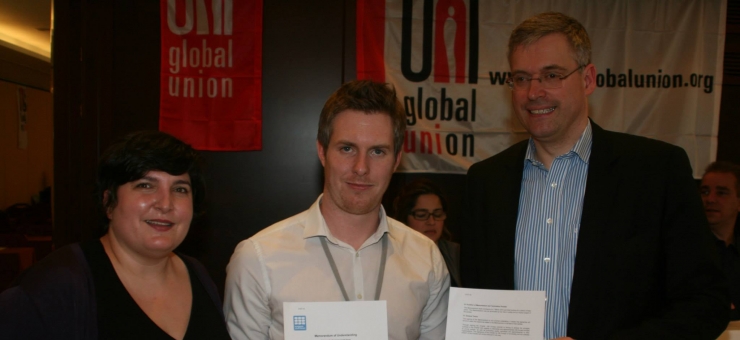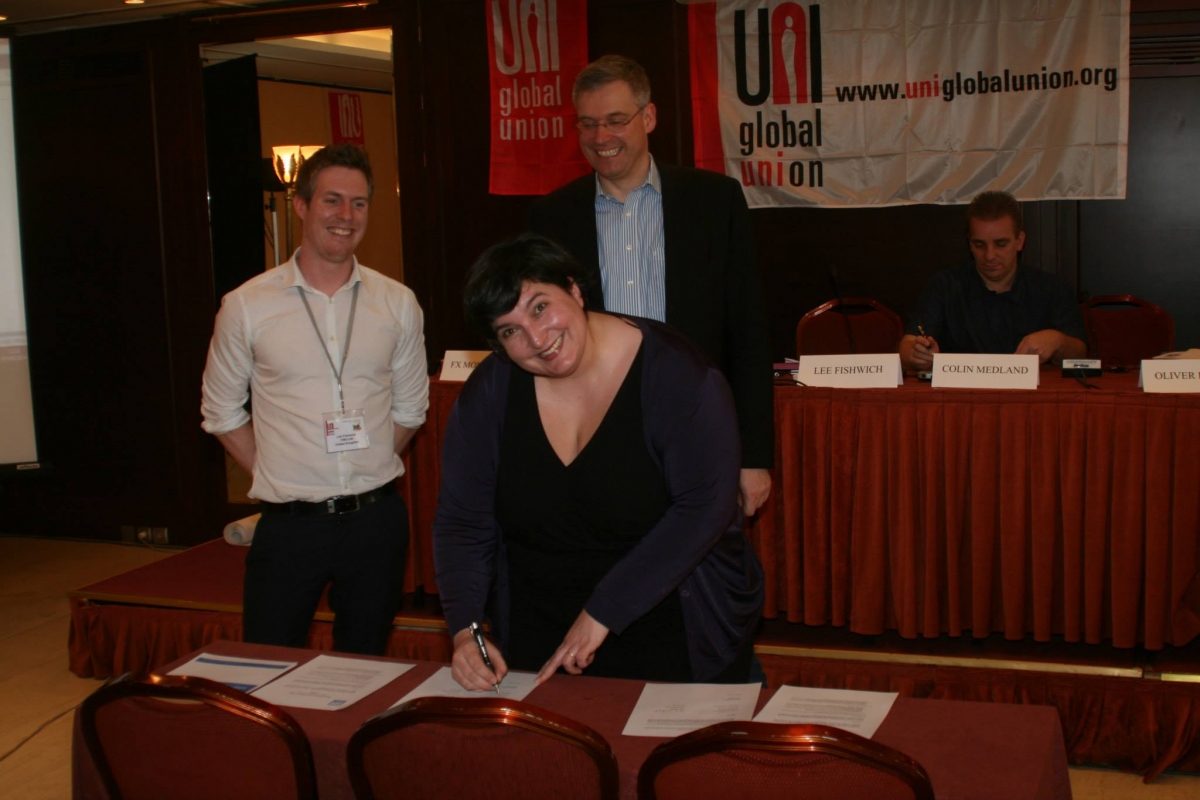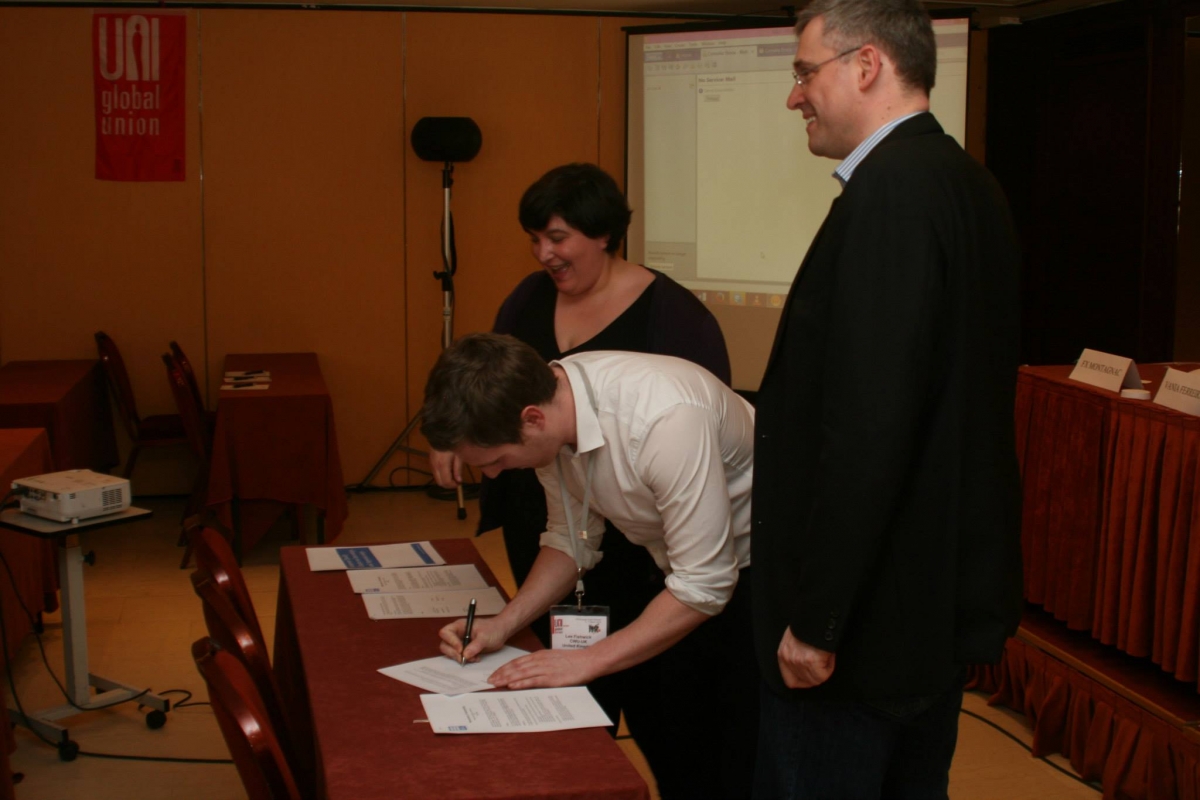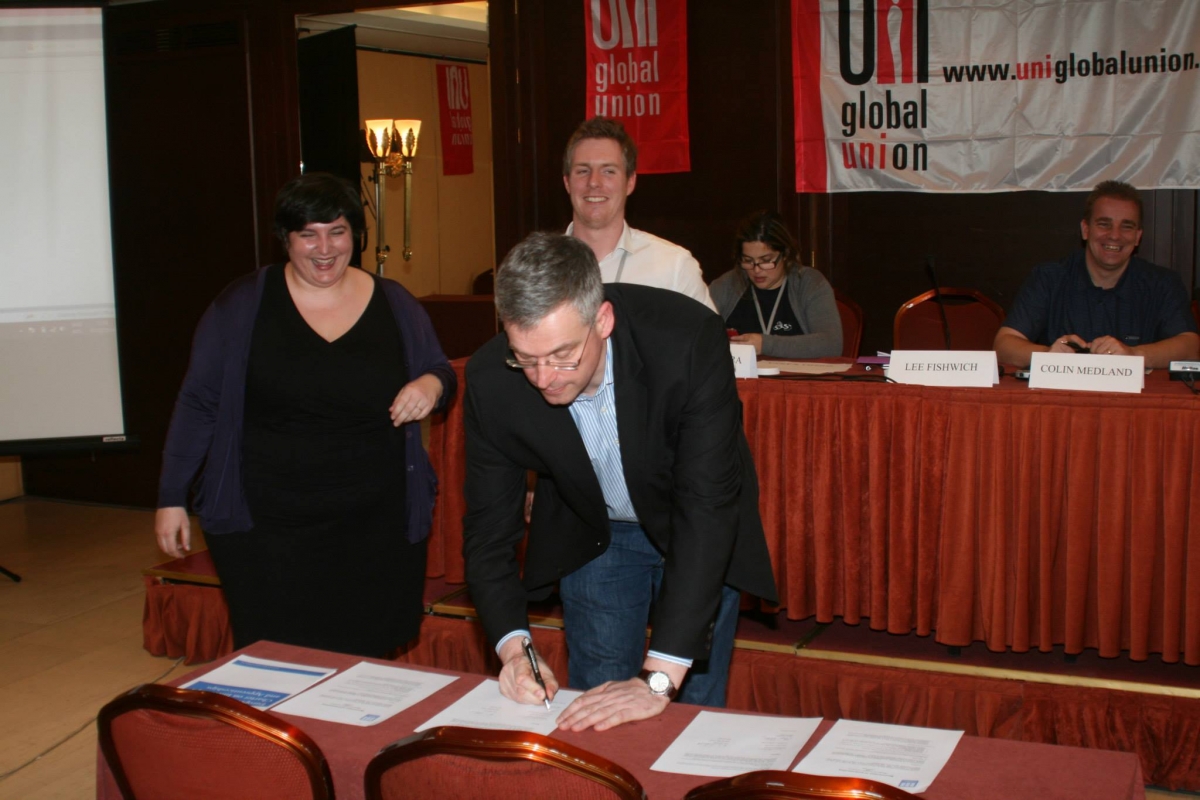UNI Europa Youth and UNI Europa Sign the Charter for Quality Internships and Apprenticeships

To address the growing trends of young people in precarious work, UNI Europa Youth join the European Trade Union Confederation (ETUC - http://www.etuc.org/press/interns-should-not-be-regarded-employees-who-w...) on sending a clear message that the issues facing young workers must be a priority to unions and employers alike. On behalf of all young people, UNI Europa Youth President, Lee Fishwick, and UNI Europa Regional Secretary, Oliver Roethig, signed the European Charter for Quality Internships and Apprenticeships, designed by the European Youth Forum (YFJ), on March 7th at the UNI Europa Youth Seminar 2014 in Athens, Greece. The signing represents the UNI Europa Youth’s message unions and employers alike, that they are obligated to follow through with the promises and commitments they have made to young workers and trainees, in order to stem the tide of youth ‘precarity’ and unemployment.

Back in February 2013, at their conference in Portugal, UNI Europa Youth group adopted an action plan and a resolution calling on their Steering Committee to establish a close link with the European Youth Forum and to promote the European Charter on Quality Internships and Apprenticeships. In acting on this commitment, the Steering Committee invited Ms. Alix Masson, the Head Youth Policy and Advocacy Officer of the European Youth Forum’s Secretariat, to present the Quality Charter to seminar participants and to highlight its success so far and potential for bringing about the principles that it sets out. In addition to Ms. Masson’s presentation, she was an encouraging participant in the subsequent workshop and discussions on the specific steps that unions can take to address the problems surrounding internships and apprenticeships.

UNI Europa Youth recognize that precarious work comes in many forms, as employers find new ways to take advantage of groups of workers in positions that are still undefined, unregulated, and unorganized. The label of ‘trainee’ has leant easy justification to employers to pay well below minimum wage standards, or nothing at all, for skilled young aspiring professionals and young tradesmen, most of whom are already burdened with university debt and facing a job market with few opportunities for decent employment. Lee and Oliver’s formal endorsement of the Charter is part of the effort to set standards, which protect the rights of young people to quality work-training opportunities. Practically, the Charter is recognized as a useful tool for employers, affiliate unions, and young workers alike, by informing young people of their basic rights at work, informing employers of the elements of a quality work-training programme, and promotes at least a minimum standard for all of Europe to uphold and defend.


